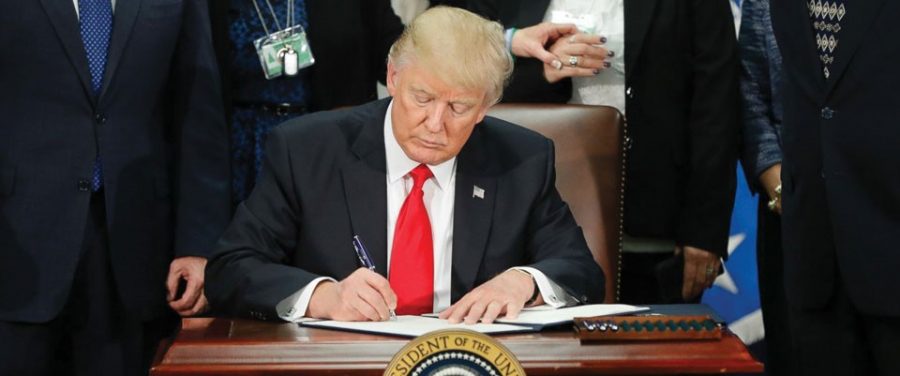Viewpoint: UW-L Reacts to Travel Bans
February 17, 2017
On Jan. 27, President Trump signed an executive order to temporarily suspend U.S. entry of refugees and immigrants from Iran, Iraq, Libya, Somalia, Sudan, Syria and Yemen.
Since then, the ban has been put on hold by the courts, but Trump and his administration are working towards reestablishing the ban. These various countries and people may seem far away, but UW- L is not left unscathed.
International student, Xiao Lai, came to UW- L in hopes of improving his English. Lai traveled here from his home in Tianjin, China. Lai recounted his first reaction to hearing about the travel ban with a single word: “Ridiculous.”
After seeing President Trump’s tweets about China, Lai believed the president viewed his home country negatively. “I’m afraid that if I go back to China, that maybe I can’t return to study.”
“I think, maybe, this ban can protect America from ISIS,” stated Lai, “So, maybe that’s the good side [of the ban]. But the wrong things outweigh the good.”
Philip Carsen, an international student from Denmark, wasn’t initially shocked by the news of the ban. “It seemed pretty drastic. I guess I kind of expected it because he’s a pretty drastic man.”
Carsen added, “It seemed like something a country shouldn’t do against other countries or people.”
Carsen also told me he believes, “…if you’re a terrorist, you will find other opportunities to get into the country. Like they wouldn’t only come in on a plane. I don’t think it would be that effective to stop terror. Although I do think it would be very effective to stop people who really don’t pose a threat to the U.S.”
Carsen ended by saying, “I think it’s going to bring about more harm than good.”
UW-L student, Marian Haile, is the daughter of two Somali immigrants. Haile told me, “I was really scared. I have family that still lives in Somalia and we’re still giving remittances, and trying to get them here.”
Haile explained that she was from Rochester, which has a large Somali community. She spoke about the effect Trump’s executive order had on this community in Rochester, “A lot of people were hurt. It was overall very sad.”
Haile shared, “My aunt and her family, they live in Quebec, and a mosque was attacked. It’s scary to think about, you never know where it’s going to happen.”
Dr. Lalita Pandit Hogan, a professor in the English Department at UW- L who grew up in Northern India, immediately felt concerned for students following the ban.
“I came to this country with dreams and aspirations to further my education. Now all I feel is uncertainty and anxiety.”
“I do think that it brought visibility to Syrian refugees, and people from the named countries entering the US, and residing here,” explained Hogan,” The purpose may have been to make certain segments of the population, who live in a bubble, aware of these “outsiders.” That does not bode well.”
Although it may seem as if the travel bans affect people thousands of miles away, people a part of our own UW-L community have already felt the pain.






